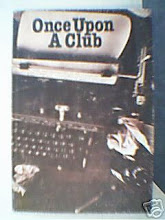
By DAVID DIZON
abs-cbnNEWS.com
A third of the traffic going to social networking site Multiply, or approximately 300 million page views, is coming from Filipino users worldwide, top Multiply executives said Wednesday.
Multiply president and founder Peter Pezaris said Multiply gets about a billion page views a month, a third of which comes from Filipinos in different parts of the globe. This makes Filipinos the number one users of Multiply, ranking higher than users in the United States where the site is based.
Pezaris said the Filipino culture's emphasis on family and relationships is the main reason why the social networking site is so popular in the Philippines.
"The reason why we are popular here, I think, relates to that notion of friends and family, the fact that our service is much more focused on connecting you with people that you know in real life rather than introducing you to people that you don’t know. It’s a site that really plays into the cultural phenomenon that’s here in the Philippines," he told abs-cbnNEWS.com.
David Hersh, Multiply vice-president for business development, also said the integration of unlimited photosharing in Multiply is very attractive to Filipino Internet users. Most Filipino Multiply users are female, in the 18-25 age bracket, and average about 160 Multiply page views a month.
"Filipinos are just rabid consumers of content. It’s amazing. Those 160 page views aren’t just fluff page views of people bouncing from profile to profile. It’s people consuming photos, videos and blogs from the people in their world. It’s meaningful activity. It reflects the deep level of engagement that we have with our user base especially here in the Philippines," Pezaris said.
Local partner
For the Philippine market, Multiply recently partnered with ABS-CBN Interactive to tap local advertisers and launch mobile services for Filipino Multiply users. (Disclosure: Abs-cbnNEWS.com is run by ABS-CBN Interactive.)
Paolo Pineda, ABS-CBN Interactive managing director, said the company is the exclusive reseller of advertising on Multiply for the Philippines. He said ABS-CBN Interactive will also be actively campaigning to build Multiply's user base in the country.
Related links
• ‘We put a lot of emphasis on connecting with people in the real world’
• (Video) The ABS-CBN-Multiply Trade Event
One of the successful Multiply communities launched by ABS-CBN Interactive centered on the Pinoy Big Brother Teen Edition Plus show. The show now has two sites - the official one where profiles and schedules are posted and a Multiply site where PBB fans can go online.
Pineda said one local call center that advertised on Multiply was able to attract recruits through its Multiply community site.
"It’s more of these community building efforts online for Filipinos worldwide. We want to really try to populate the brand and get more people to understand it and work on the advertising and get the brands to see that this is really a safe place to put your brand in," he said.
Real-world relationships
Hersh said Multiply currently has nine million registered users worldwide, of which 2.2 million are Filipinos. He said that while the growth of Multiply has been slower compared to other social networking sites such as MySpace and Facebook, it is the real-world relationships in Multiply that sets it apart and ensures its longevity.
"If your online social network is full of people that you have no real world connection to, there’s very little reason to keep you there and it’s very easy for you to switch. But on Multiply, it’s your real-world social network online and your content and it’s the discussion that goes on around that content that’s going to keep you coming back," he said.
Adds Pezaris: "It’s closer, deeper relationships which enables the sharing of personal, meaningful content to you and the continuing sharing of that is the personal documentation of your life online. Over a period of time, you build up this history like a living scrapbook of what’s happening in your life and it’s a collaborative effort because while you add to it, all your friends and family add to it also and that’s what really develops the long-term value."










No comments:
Post a Comment